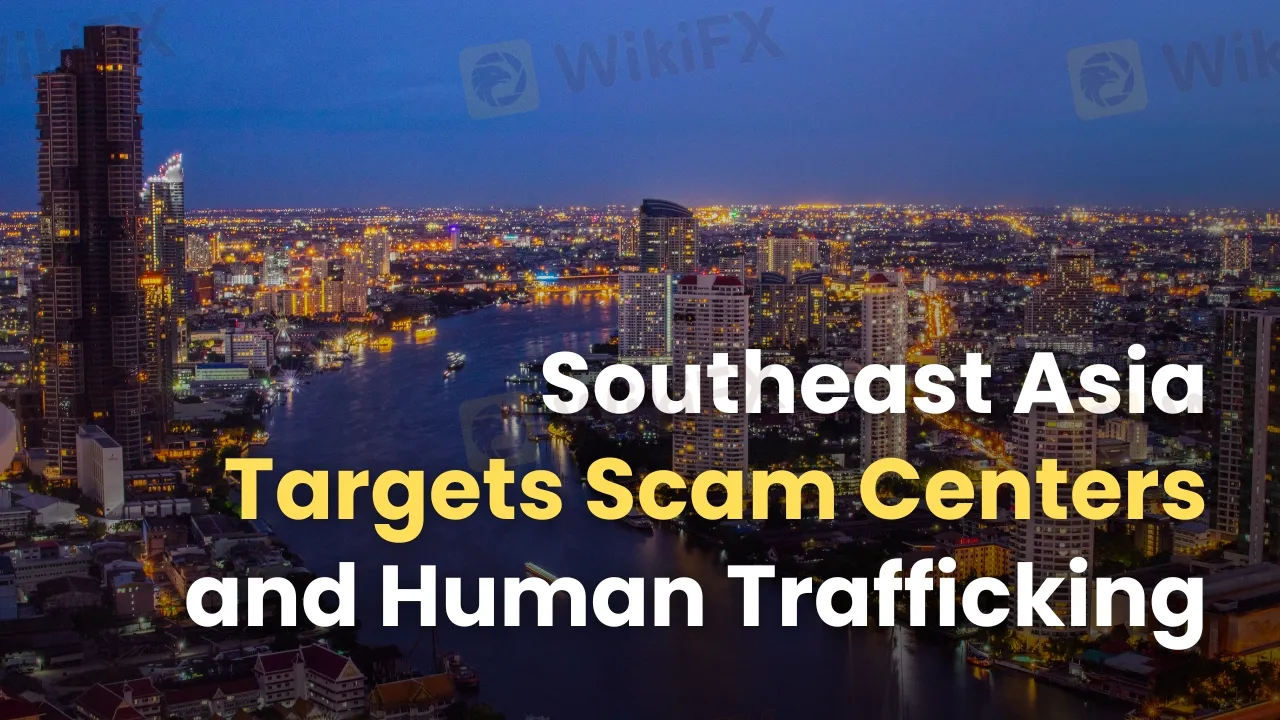简体中文
繁體中文
English
Pусский
日本語
ภาษาไทย
Tiếng Việt
Bahasa Indonesia
Español
हिन्दी
Filippiiniläinen
Français
Deutsch
Português
Türkçe
한국어
العربية
Southeast Asia Cracks Down on Scam Centers: Human Trafficking and Fraud Exposed
Abstract:Southeast Asian nations disrupt scam centers tied to human trafficking and fraud. Learn how Indonesia, the Philippines, Singapore, and Thailand are tackling this global criminal enterprise.

Governments across Southeast Asia are stepping up efforts to dismantle international scam centers that have cost victims billions and fueled widespread human rights violations.
Authorities in Indonesia, the Philippines, Singapore, and Thailand are leading the charge against these criminal networks, launching raids, arresting suspects, and rescuing forced laborers. Many of the scam operations are reportedly concentrated in Myanmar‘s Myawaddy region, an area heavily influenced by militias aligned with the country’s military junta, which overthrew the elected government in 2021.
“These scam centers are deeply rooted in Chinese transnational criminal organizations,” said Julia Dickson, a research associate at the Center for Strategic and International Studies (CSIS) in Washington, D.C. “They often depend on trafficked labor — victims who are imprisoned in fortified compounds and forced to conduct illicit online activities such as impersonation scams, data harvesting, or laundering money.”
The financial damage caused by these schemes is staggering. In the United States alone, scam victims reportedly lose up to $50 billion annually, with cryptocurrency investment frauds topping the list, according to The Economist.

Myanmar's border areas, particularly Myawaddy, have become hotspots for scam-related crime. The region has also become a hub for human trafficking, illegal drug trade, and unregulated casinos. “These operations contribute to social instability, leading to addiction, unemployment, and the worsening of Myanmar‘s humanitarian crisis,” said Dr. Stefanie Kam of Singapore’s Nanyang Technological University.
In February 2025, Thailand made a bold move by cutting off fuel and electricity supplies to Myawaddy in an attempt to cripple the scam compounds. That same month, Thai military forces rescued more than 260 individuals trapped in forced labor scams. Those rescued came from a wide range of countries including Brazil, China, Japan, Pakistan, the Philippines, and more.
Singapore has also taken a tech-forward approach. In March 2025, the city-states Anti-Scam Centre, working in collaboration with four major banks, prevented an estimated $58 million in potential losses through rapid-response systems that flag suspicious transactions and warn vulnerable customers.
Cross-border collaboration has also proven effective. In a joint operation in September 2024, Indonesian and Philippine authorities captured a Chinese national posing as a former local mayor in Bamban, Tarlac province. The suspect had fled after a crackdown on offshore gaming operations, which authorities discovered were being used as a front for large-scale scam activities. The compound he ran was so large, investigators said, that it dwarfed the actual town.
Philippine President Ferdinand Marcos Jr. has taken a firm stance on these illegal enterprises. In July 2024, he ordered the shutdown of offshore gaming centers, stating they had strayed far from legitimate operations and had become breeding grounds for severe crimes, including “financial scamming, money laundering, prostitution, human trafficking, kidnapping, brutal torture — even murder.”
As the region continues to battle these sophisticated networks, coordinated action and sustained vigilance remain crucial. Southeast Asian leaders appear resolute in their mission: to dismantle scam centers, safeguard human rights, and restore peace and order.

Disclaimer:
The views in this article only represent the author's personal views, and do not constitute investment advice on this platform. This platform does not guarantee the accuracy, completeness and timeliness of the information in the article, and will not be liable for any loss caused by the use of or reliance on the information in the article.
Read more

Never Heard of Dynasty Trade? Here's Why You Should Be Worried
Have you heard this name before? No , it’s time you do because staying unaware could cost you. This platform is currently active in the forex trading and has been linked to several suspicious activities. Even if you’ve never dealt with it directly, there’s a chance it could reach out to you through ads, calls, messages, or social media. That’s why it’s important to know the red flags in advance.

WEEKLY SCAM BROKERS LIST IS OUT! Check it now
If you missed this week's fraud brokers list and are finding it difficult to track them one by one — don’t worry! We’ve brought together all the scam brokers you need to avoid, all in one place. Check this list now to stay alert and protect yourself from fraudulent brokers.

Catch the Latest Update on BotBro & Lavish Chaudhary
BotBro, an AI-based trading platform, became popular in India in 2024—but for negative reasons. Its founder, Lavish Chaudhary, who gained a huge following by promoting it heavily on social media. Since then, he has become well-known, but for many controversies. Let’s know the latest update about Botbro & Lavish Chaudhary.

Trading Other People’s Money | What Prop Firms Don’t Tell You
Proprietary (prop) trading firms have become increasingly popular. They give traders the chance to trade with larger amounts of money without risking their own savings. For many, this sounds like the perfect opportunity to grow faster and earn more. But while the benefits are appealing, there are also risks and hidden rules that traders must understand before joining a prop firm.
WikiFX Broker
Latest News
Is Your Forex Strategy Failing? Here’s When to Change
FSMA Warns That Some Firms Operate as Pyramid Schemes
Apex Trader Funding is an Unregulated Firm | You Must Know the Risks
Sigma-One Capital Scam? Investors Say They Can’t Withdraw Funds
Federal Reserve likely to hold interest rates steady despite pressure from Trump. Here's what that means for your money
WEEKLY SCAM BROKERS LIST IS OUT! Check it now
Intel drops 9% as chipmaker's foundry business axes projects, struggles to find customers
Palantir joins list of 20 most valuable U.S. companies, with stock more than doubling in 2025
Textiles to whisky: U.K.–India 'historic' deal is set to boost bilateral trade by over $34 billion a year
Thailand-Cambodia border clashes: Cambodia's economy has more to lose, analysts say
Currency Calculator


